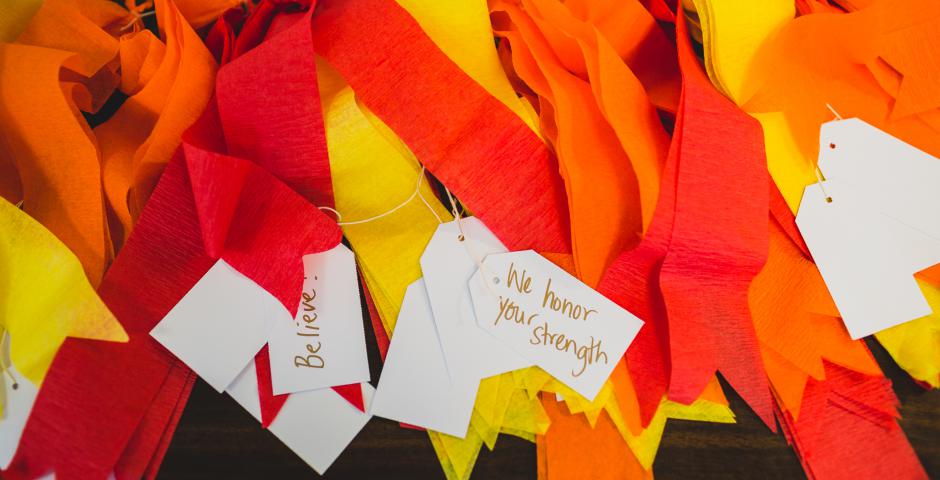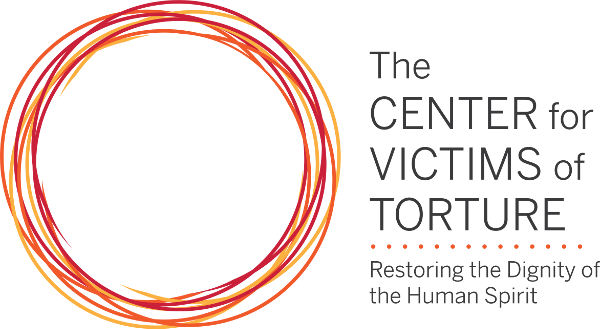
Permanent Medicine: a guest post from the Center for the Victims of Torture
By AdministratorThe Center for Victims of Torture's work began with a simple conversation between a father and his son. As a young volunteer for Amnesty International, Rudy Perpich, Jr. asked his father – then Governor of Minnesota – a tough question: “What are you doing for human rights?” Inspired by his son’s challenge, Governor Perpich directed a committee of human rights experts to research various initiatives. The most appropriate proposal from this group was a rehabilitation center for survivors of torture.
Founded in 1985, the Center for Victims of Torture (CVT) works toward a future in which torture ceases to exist and its victims have hope for a new life. CVT's staff and supporters are dedicated to healing survivors of torture and violent conflict, providing direct care for those who have been tortured, training partners around the world who can prevent and treat torture and advocate for human rights and an end to torture.
 Since our founding, CVT has extended rehabilitative care over 33,000 torture and war trauma survivors with current locations in Jordan, Ethiopia, and Kenya. We have also pioneered research in torture survivor rehabilitation to better understand the effects of torture and how best to heal survivors.
Since our founding, CVT has extended rehabilitative care over 33,000 torture and war trauma survivors with current locations in Jordan, Ethiopia, and Kenya. We have also pioneered research in torture survivor rehabilitation to better understand the effects of torture and how best to heal survivors.
Kidane is one of those survivors. Kidane was in the military service in Eritrea and planned to get an education after he served. However, the military had a problem with him and they beat him. They tortured him. His head was badly damaged, and he was severely beaten on his back. He had a lot of pain in his legs and was unable to work because of the torture. “I escaped to Ethiopia. When I got to the refugee camp, I was living a life of closed doors,” Kidane tells CVT. “I was isolated, always by myself. People noticed this, and they told me about CVT.”
As in Kidane's case and many others, torture has profound long-term effects. Physical reminders include headaches, chronic pain, respiratory problems and a host of other symptoms. The psychological damage is often worse. Living with constant fear, debilitating depression and regular panic attacks prevents survivors from caring for themselves, their families and contributing to their communities. Torture affects five basic human needs: the need to feel safe, the need to trust, the need to feel of value (self-worth), the need to feel close to others and the need to feel some control over one's life. Torture’s purpose is to break an individual’s will and render one helpless.
But healing is possible. Every day, CVT restores hope in those who have endured the unimaginable. At our healing center in St. Paul, we extend psychotherapy, social services, and nursing care as well as medical and psychiatric care and legal referrals. Internationally, we extend mental health and, where possible, physiotherapy care to survivors of torture and war in areas of the world where few mental health resources are available. We provide social services at all locations.
![]() We help survivors rebuild their lives so torture is in their past and not something they re-live every day. “I got hope at my first session at CVT,” Kidane continues. “I got to talk about what had happened and about my feelings. The experts there were very polite, even when I was crying.”
We help survivors rebuild their lives so torture is in their past and not something they re-live every day. “I got hope at my first session at CVT,” Kidane continues. “I got to talk about what had happened and about my feelings. The experts there were very polite, even when I was crying.”
He says: "CVT gave me a permanent medicine.”
For more information, visit www.cvt.org. Sign up for CVT's monthly e-newsletter here.
Foundation Beyond Belief is proud that the Center for the Victims of Torture (CVT) is our Human Rights beneficiary this quarter. CVT has spent decades treating patients both with mental and physical impairments due to torture, and they now have the expertise to share their resources nationally and internationally. Sadly, torture is one of the most common human rights violations.
